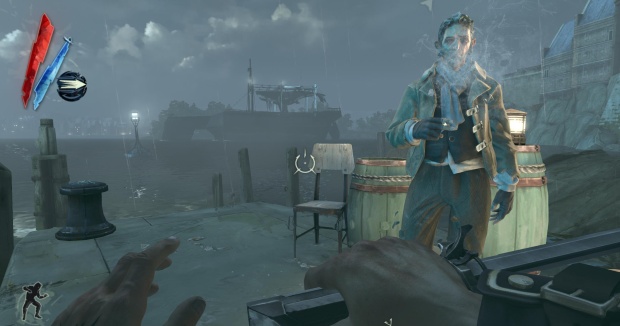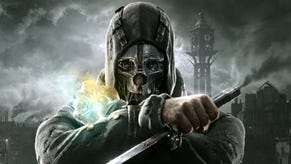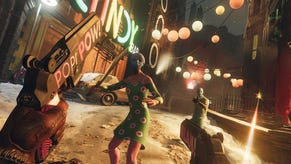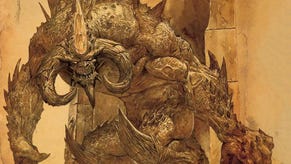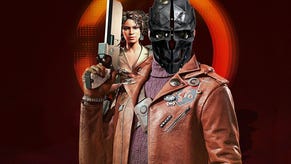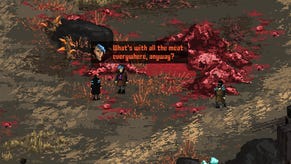Honouring Dishonored: Celebrating Three Little Details
A game with heart
A couple of weeks ago I was teasing splendid Kotaku writer Jason Schreier after he tweeted describing Dishonored as "still underrated." Underrated?! The PC version has a Metacritic rating of 91! There’s only one score (or “rating”, you might say) under 8/10, and that review is silly. This is one of the most highly rated games ever!
Since I’ve started replaying it, once again attempting to rescue the young empress from an evil regime, I keep thinking to myself, “Man, this game was underrated.” Sorry Jason.
I think I’ve ended up realising the game was primarily underrated by me, and I bloody loved it. As I once again explore its epic missions in intricate detail I’m noticing more and more that makes me recognise just how outstanding the game really is. Why isn’t this the game we cite when we complain about all other games?
For this first retrospective, rather than talk about the larger story or the details of the missions, I’m going to pick three of the features in the game that make me want to give the screen a round of applause. Celebrate them, because they deserve celebration.
The Background Conversations
Dunwall, Dishonored’s city setting, has been deservedly lauded for its depth and breadth, each sprawling mission location replete with hidden routes, secrets to discover, and multiple paths to take on any situation. You can sneak to the rooftops and silently leap and Blink your way to your goal, or tramp through sewers, or possess rats and sneak through tiny passageways, or blunder in guns blazing, or push your luck and attempt to stealth your way along the streets busy with guards. It’s madly rare that a game genuinely gives you such choice, and just so well delivered here. But there’s something else that becomes very apparent as you do this.
The chatter. Now, nearly all games offering any notion of player freedom tend to have banter between NPCs. Indeed, the games of which this is a spiritual successor, like Deus Ex and Thief, had guards nattering away, dropping tasty tidbits of information or amusing anecdotes. But Dishonored raises the bar very significantly. Firstly, there’s quite so much of it. So many defined characters despite being stock-guards, their informal conversations well worth stopping to hear. Second, it’s well acted, smartly written – these chats give so much life to the city, so much background to the major characters, or just a pleasing laugh. Rather than being filler, they feel like welcome story, stuff you’re glad you didn’t miss.
And thirdly, it adds a real effect to how you want to play the game. Being offered the freedom to be a wanton murderer, zealous pacifist, or anything in-between, I often find my decision is driven far more by my own proclivities or mood than anything offered by the game. Here, hearing these people with lives and thoughts and questions – now there’s a far greater sense of consequence to my actions over the more usual headshotting to have them shut up. Playing entirely pacifist as I am (I plan to write a lot more about this in another post), I’m even feeling some guilt about tranquing some of these people. (With others, the arseholes, I’m taking great delight.)
So much personality in the city, stuff that is entirely ignorable, requires a lot of dedication from the developers – to write and record quite so much that you know most players will never hear is a big deal. It really pays off in Dishonored. Which brings us to...
The Heart
There is no chance that I can improve upon Paul Walker’s stunning article about Dishonored’s Heart from 2012 but I shall jot a few thoughts of my own here.
Where the conversations mentioned above give so much life to the city, the Heart gives it – well – it gives the city its heart.
I so love that what is ostensibly an in-game compass, designed to point toward hidden upgrades, ends up being something so much more, something so much deeper. The Heart, gruesomely an actual human heart clutched in Corvo’s hand, augmented with twisted wires and tubes, tells you of the city and city inhabitants’ souls.
Point it at anything in the game and the incredible voice acting of April Stewart will describe it to you in distinctly emotional tones. This can be a building, an area of the city, a random faceless guard, a major enemy or ally, anything. And what you hear doesn’t just flesh things out, but changes your mind.
Take Admiral Havelock – an organiser of the Loyalist Conspiracy, owner of the group’s meeting place, the Hound Pits Pub, and the man who arranges your freedom from prison at the start of the game. He appears, early on, to be an austere and grave good man. But use the Heart on him in those first few hours and you’ll learn of a man who has seen more corpses than anyone else in the story put together, and, we’re told, “killed whales and men for profit, and pleasure.” He’s a monster. Click again, and you might learn about his younger brother, a gentle child and artist, who died aged 9. “Havelock loved him truly.” He’s a broken man. Then, “He has the bloodlust. He tried to seize control of the military after the empress... she... the empress was murdered.” Then what are his real motives? Who is this man who’s leading the cause for which you’re fighting?
Finding this out this way is unique. I need not have used the Heart on him at all, nor indeed on anything else in the game. I could have taken him at face value, worried at some of his conversations with Lord Pendleton, but not known more. In learning more, I’ve learnt not crucial plot information, but conflicting emotional knowledge about a complex man.
Oh, and that last line I quoted? That’s fascinating too. Those ellipses are the Heart’s usually authoritative and mellifluous voice catching, hesitating, seemingly not sure whether to share something, emotionally wrought and fragile.
The Jump Button
I had planned to write about Blink, one of Dishonored’s many mystical abilities that allows Corvo to leap forward, upward, downward in a particular unobstructed direction. I adore it. Teleporting to a nearby ledge, onto a rooftop, then placing myself on the ground immediately behind a guard so I can throttle him unconscious (it’s a weird form of pacifism) and pop his snoring body onto the pile I’ve been collecting. Blink is one of the most satisfying mechanical features in any game I’ve played. But instead I’m talking about just the basic jump.
Having recently struggled through the very broken Homefront: The Revolution, one of the most frustrating aspects of the game was the clumsy and woefully inaccurate jump. The game wanted you to scramble through ruined buildings, but just wasn’t good enough to let you. And as I was frustrated with it, I realised how common this frustration is, how normal it seems for a game’s jump feature to be a troubling mess.
So rediscovering just how well Dishonored’s works was a revelation for me. “Oh, right, THIS is what it should be like!” Even without augmentation, the basic spacebar-to-jump here feels so effortlessly lovely to use when navigating the streets. Mantling isn’t a timing-based stab of a key or mouse button, it’s automatic, because you obviously didn’t want to jump up in front of the crate and then watch it slide past your face on the way down – you were trying to get on top. Movement feels smooth, almost liquid, as you scarper and scamper, darting up rocks or obstacles to escape a mob of hungry rats or to avoid the gaze of an alerted guard. Rather than being conscious of the mechanic with which you’re engaged - John playing a computer game - you remain in-fiction - Corvo scrambling for his life.
And that’s not my favourite thing about it! My favourite thing is so simple, so small, it almost feels petty to describe it. And yet. It’s that when I’m crouched, and jump, I land crouched. I’m sure there are other games that have realised that jump is not synonymous with walking upright afterward, but I’m struggling to think of them. And it makes such a difference! Well, after I’ve gotten used to its being the game that gets it right, and not over-compensating by accidentally standing up again once I’ve landed.
And this is indicative of the game Dishonored is. A game that wants to be played, not fought against. A game that understands how people play games, and adjusts itself for that. Of course these should be things we expect, not things to celebrate in jubilant articles, but there we are.
Jason was right. Lots of high scores and critical acclaim do feel like underrating! This is a game that ought to have joined the Mighty Lists containing names like Deus Ex and Thief. It’s one of them, and deserves to be revered as such.





